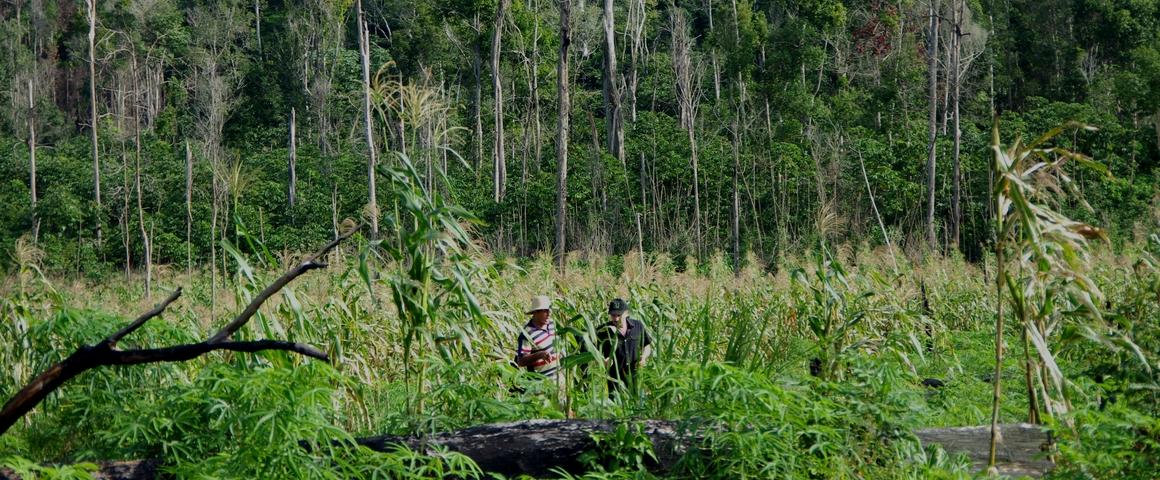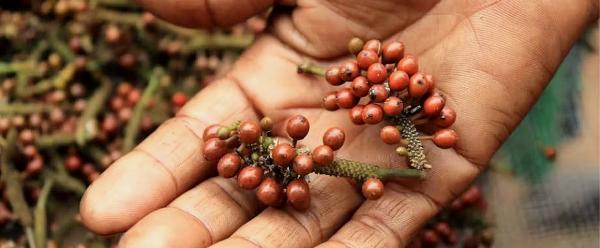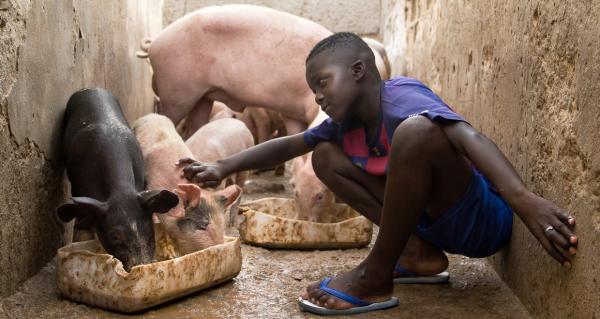Science at work 6 May 2024
- Home
- CIRAD news
- News
- Certifying a sustainable territory in the Amazon
Certifying the sustainability of an entire territory: the gamble being taken by a Brazilian municipality

Field survey with a farmer in Paragominas, a municipality in the heart of the Brazilian Amazon © R. Poccard-Chapuis
In Paragominas, the idea is not to certify an agricultural product or a producer group, but the entire municipal territory and its development pathway. This completely new type of certification, built hand-in-hand with local people, guarantees transparency and security for investors and for the authorities.
The initiative is supported by the TerrAmaz regional project, which aims to fight deforestation in the Amazon by supporting transitions to sustainable forms of development. It is funded by the Agence française de développement and coordinated by CIRAD, and covers five sites across the Amazon, in Brazil, Colombia, Ecuador and Peru.
Modernizing data management
All certification schemes rely on shared criteria and a solid information system. In Paragominas, TerrAmaz's partners are building an IT infrastructure that allows the municipality to gather and manage all the necessary data.
Innovative maps of soils, forests, rivers, farm characteristics, institutional activities, etc... the municipality is being scrutinized closely to support environmental, economic and social dynamics and observe the progress made. The system serves to highlight the key factors specific to this territory. For instance, the role of riverside trees: their roots control erosion and improve water quality, which facilitates decantation and filtration for urban drinking water supplies.
Sustainability indicators determined with local people
The Paragominas territorial certification scheme is participatory: local people were consulted to set sustainability targets and choose the indicators and means of verification that best suit their needs.
For the municipal authorities, civil society participation is not just a necessity, it goes without saying. It ensures that local people are involved in implementing and sustaining the scheme, while promoting public action: a win-win system. It is also the best way of reaching agreement on the territory's assets, limitations and constraints.
Full transparency thanks to a free online service
Investors, citizens, businesses and public policymakers all expressed a need for transparency as regards certification. To this end, the partners in the TerrAmaz project have come up with an online platform to report on Paragominas' progress. The platform is on open access and will provide users with a mapping and consultation service to allow them to monitor the evolution of each indicator. IMAFLORA, a Brazilian certification organization, is contributing to the project by testing an initial pilot of the certification scheme, which will provide independent proof of the progress made across the territory.
The territorial certification of Paragominas could set an example for other territories in the Amazon, according to René Poccard-Chapuis, a geographer from CIRAD and coordinator of the TerrAmaz site for Paragominas. "The Amazon as a whole has a degraded image, which hampers investment across all territories, even those that are no longer deforesting and have committed to transition to sustainable development. However, investment is the only way of consolidating those transitions. It is therefore vital that we channel responsible investment towards these deserving territories, to speed up progress and show everyone the way."
The novel territorial certification approach is due to be discussed at the Amazon Dialogues, to be held ahead of the Amazon Summit. During the event, to be held in Belém in early August, government representatives from all the Amazon countries will be taking strategic decisions for the region's future. Marie-Gabrielle Piketty, an economist from CIRAD and TerrAmaz project leader, will be following the talks closely. "To inform public policy and responsible investment in the Amazon, we absolutely must be capable of distinguishing between territories that are doing more than just reducing deforestation and are moving on to more ambitious sustainable development objectives", she says.


























